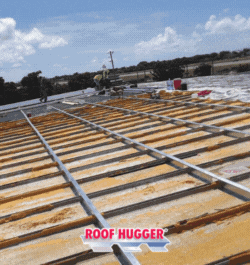New construction payroll rules are here — Is your business ready?
May 6, 2025 at 3:00 p.m.By Alex Gray, Foundation Software.
New regulations, union rate changes and reporting mandates make payroll a priority for contractors this year.
For construction companies, kicking off a new year usually means launching projects, hiring crews and hitting the ground running. But before the first hammer swings, there’s one area you can’t afford to ignore: payroll. In 2025, changes in wage laws, union rates and federal reporting requirements are reshaping how contractors need to approach payroll. Fall behind and you risk compliance headaches, audit penalties and operational delays. The good news? Specialized construction payroll services — like those offered by Payroll4Construction — are evolving just as fast and they may be your best bet for staying ahead.
Key payroll updates for 2025:
- Overtime exemption salary threshold: The new minimum salary for overtime exemption is $684 per week or $35,568 per year.
- WH-347 form updates: The Office of Management and Budget (OMB) approved changes to the WH-347 form, aiming to enhance clarity and simplify reporting.
- State-specific regulations: Be aware of any state-specific minimum wage changes, paid leave expansions and other labor law updates.
- Tax withholding requirements: Ensure compliance with the latest tax withholding requirements.
- Payroll software updates: Check if your current payroll software supports the 2025 updates, including new overtime thresholds and state-specific requirements.
Navigating 2025 payroll changes: Why contractors need dedicated construction payroll solutions
Efficient payroll management, such as that brought to you by Payroll4Construction, has become increasingly challenging for construction companies as wage laws and payroll taxes continually evolve, adding another layer of complexity to an already complex task of ensuring construction workers are paid correctly.
Construction payroll services address these construction payroll challenges by helping contractors stay compliant across multiple jurisdictions and job sites, accurately calculating union dues and maintaining comprehensive audit trails.
By partnering with a construction payroll provider, contractors can reduce administrative burdens allowing you to focus on managing future projects rather than handling payroll complexities.
1 – Shift to technology and eFiling
Construction payroll has seen a significant shift toward technology in recent years, with more companies adopting construction payroll services to streamline processes.
This transition has been largely driven by the need for greater efficiency and accuracy in managing complex construction payroll requirements, such as:
- Union wages
- Overtime rate tracking
- Certified payroll reporting
- Tax compliance
- Time tracking
Additionally, there’s been an increasing requirement for eFiling, as many government agencies now mandate electronic submission of payroll reports and forms like the Affordable Care Act (ACA) to ensure timely processing and reduce the risk of errors.
As a result, adopting construction payroll services that offer eFiling keeps you compliant while reducing administrative burdens, saving time and minimizing the risk of costly mistakes.
2 – Changing union rates
The construction industry is deeply tied to unions, which are constantly shifting their due rates (rates that vary for each union). Dues increases can occur due to:
- New contracts
- Renegotiations
- State or federal regulations
As a construction business owner, it’s vital to ensure you’re staying ahead of these changes to remain in compliance with labor laws and union regulations.
At the start of each year, many unions provide contractors with new wage rates, benefits and overtime rules. If your company works with union employees, you’ll need to update your payroll system accordingly.
Failing to adjust for these changes could result in overpaying or underpaying employees, which could lead to costly penalties, reputational damage and legal disputes.
Make it a priority to monitor union rate updates in the early months of the year and adjust your payroll practices accordingly.
3 – Consistent and accurate reporting

Certified payroll reporting, Davis-Bacon compliance and state-specific wage reporting are all necessary requirements for many lucrative construction jobs. This makes the construction payroll process more complex compared to other industries.
Since the WH-347 can be updated whenever, as it was at the beginning of 2025, it’s essential to ensure that your reporting practices are consistent, accurate and up to date. This means making sure that your payroll system captures all the necessary data, such as hours worked, wages paid, fringe benefits and union contributions, in the correct format.
Take the first few months to audit your payroll processes and ensure your team has everything in place to stay compliant. You should also review your time tracking processes to make sure you’re gathering accurate data for payroll calculations to avoid future disputes and costly errors.
Consider working with a comprehensive payroll service provider that specializes in construction to ensure your reporting is always accurate and meets legal requirements — especially as new regulatory requirements are introduced.
4 – Emphasis on audits
The first few months of the new year is a great time to think about your audit preparedness. Construction businesses are often subject to audits by government agencies, especially for Davis-Bacon projects.
While audits can happen at any time during the year, it’s smart to prepare for them in advance.
Ensure your payroll records are thorough, organized and easy to access. Having up to date reports on hand will make it much easier to handle an audit, should one occur.
As part of your audit prep, review past records for accuracy, check that all fringe benefits and deductions are accounted for and confirm that certified payroll reports are complete and accurate.
Additionally, check time tracking records and review your current procedures to determine areas for improvement, such as more accurately tracking employe hours or offering digital clock in/clock out to employees.
Many construction payroll services can automatically compile this information during each pay period.
5 – Address employee fringe benefits
Fringe benefits, such as health insurance and retirement contributions, are an important part of a construction employee’s compensation.
With a new year, it’s essential to revisit your fringe benefit policies and ensure they comply with union agreements and government requirements.
Consider whether any updates are needed to avoid discrepancies when you file reports or undergo an audit.
6 – Evaluate your payroll service provider
It’s a good time to evaluate your current payroll system in the first couple months of the new year to ensure it’s meeting the specific needs of your construction business.
For many construction companies, the complexities of tracking union hours, certified payroll, fringe benefits and multi-state regulations make payroll management a daunting task.
Consider whether your existing payroll system is fully equipped to handle these challenges or if it’s time to explore more specialized solutions like construction payroll services.
Look for services that offer features tailored to the construction industry that can automate:
- Certified payroll reports
- Multi-state tax handling
- Compliance with union reporting requirements
If you’re not sure whether your current payroll system is up to the task, now is the time to explore other options.
A payroll system that integrates with your time tracking, job costing and construction accounting software can save you significant time and prevent errors.
The right payroll system will keep your operations running smoothly throughout the year and minimize the risk of costly mistakes.
Original article and photo source: Estimating Edge/Foundation
Learn more about Estimating Edge in their Coffee Shop Directory or visit www.estimatingedge.com.






















Comments
Leave a Reply
Have an account? Login to leave a comment!
Sign In